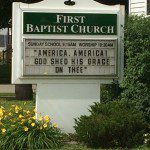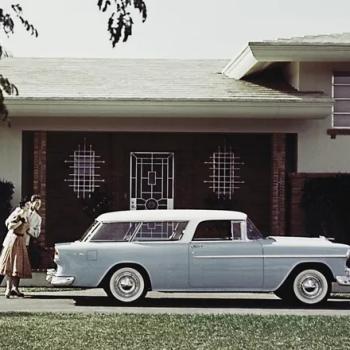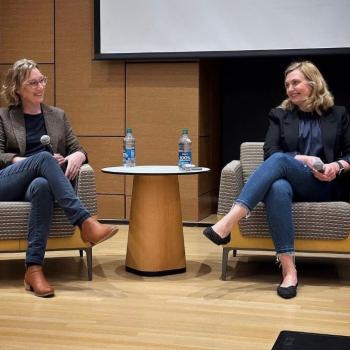Historically, evangelicals have hesitated to engage structures and systems. The book Advocating for Justice represents a new trajectory. This guest post, by Krisanne Vaillancourt Murphy of Bread for the World, describes how one local congregation in Indiana is pushing for immigration reform. –David
***
Evangelicals can effectively practice transformational advocacy in the local church. Here are three reasons why:
First, local churches are embedded in communities. As institutions, local churches have a public presence that townspeople know and respond to. As bodies of believers, church members nurture personal relationships throughout the community. Both of these give local churches the moral credibility needed to address political issues that are related to poverty.
Second, local congregations have a tradition of responding to the needs around them. They are often the launch pad for compassionate ministries such as tutoring, short-term mission trips, canned-goods collections, prison ministries, and job training, to name just a few. Such activities allow church members to listen to firsthand stories of those affected by injustice and to provide for a deeper and up-close understanding of the injustices marginalized members of the community face.
Third, the local church is a trusted source of shared information. Inside its walls and within its body of believers, churches can share news about people affected by injustice in meaningful and believable ways. When congregants learn about such issues, they can form groups to champion causes, explore topics, and gather together for activities such as small Bible studies, mothers’ or men’s groups, and social ministry teams. These activities become mechanisms which can facilitate effective advocacy.

What does it actually look like when a local church practices advocacy? The Bridge Community Church (Wesleyan) of Logansport, Indiana is an example. Bridge Community Church wanted to respond to the immigrant suffering in its surrounding community. Leading up to 2014, the US Congress failed to take action on immigration reform. President Barack Obama announced an executive order in November 2014 that gave millions in the United States who lack documentation an opportunity to apply for temporary legal status. So Bridge Community Church opened a legal clinic to help immigrants navigate the confusing immigration process while also pushing national decision-makers on comprehensive immigration reform. It became the first Board of Immigration Appeals site for the Wesleyan Church in the United States, and established a legal clinic to help immigrants apply for this new status. The church’s pastor, Rev. Zach Szmara, recalls how his congregation became part of a solution in the suffering caused by a broken immigration system:
There have been times we’ve missed the mark as the Church in North America and sat on the sidelines when God was calling us to engage and transform our culture. I am deeply grateful and extremely proud that so many different churches, leaders, denominations, and organizations have made a very profound decision to engage immigrants and immigration in a biblical, Christ-focused, and Kingdom-minded way. We are better together. (Drury, “Wesleyan Church Joins.”)
The Bridge Community Church led the way for dozens of other Wesleyan congregations to learn how to accompany immigrants and advocate for systems change at the same time.
Most local evangelical churches have little experience articulating advocacy messages and making them operational. One reason for the hesitation could be that historically evangelical local churches are skeptical about engaging aspects of faith life beyond the personal, spiritual, and charitable realms. And systems of injustice are rarely improved when they are left unchallenged. Like Bridge Community Church, when a local church values advocacy, it can respond compassionately and effectively to suffering. Local churches offer a reason for hope and purpose behind efforts to restore both personal and societal brokenness. Personal relationships, stories, and the involvement of the local church can critically inform advocacy campaigns.

















